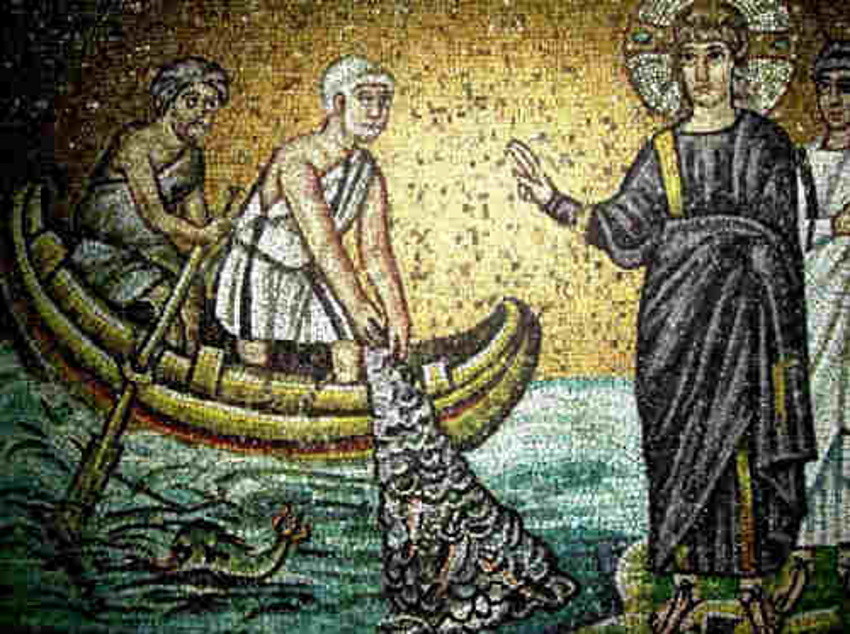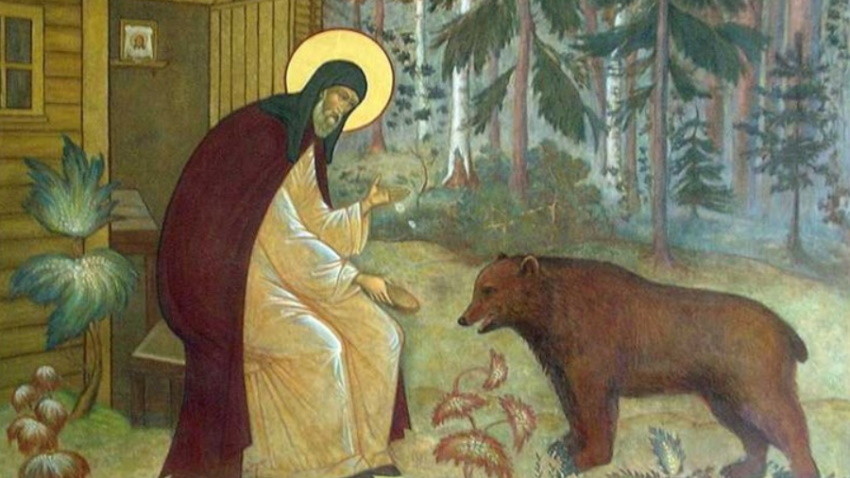In Bulgarian folk traditions, St. Andrew's Day (Andreevden in Bulgarian) marked on the last day of November is considered as part of the Christmas and New Year holiday cycle. Many of the rituals associated with this date are still performed today. And even the youngest children in this country have heard the belief that from St. Andrew's feast the night starts to become shorter and the day begins to grow "with one millet grain". This is the case until St. Ignatius' Day (Ignazhden) on December 20 when the light part of the day increases as much as the tip of a needle.
The Orthodox Christian feast celebrated on November 30honours the memory of St. Andrew, or Andrew the Apostle (known in the Orthodox tradition as the First Called (Parvozvani), brother of St. Peter. A disciple of John the Baptist, according to tradition, Andrew was among the people to whom John pointed to Jesus with the words, “Behold the Lamb of God!” When he heard this, Andrew followed the Saviour and spent the whole day with Him. Andrew and Peter were fishermen and continued to lead their previous lives after this event. After a while, Jesus met them on the shores of the Sea of Galilee while they were fishing and told them, "Follow Me, and I will make you fishers of men." Since then, they have followed Him everywhere and witnessed His miracles, death, and resurrection.

Probably the fact that St. Andrew was a fisherman, people in Bulgaria, especially along the southern Black Sea coast, honour the saint on a par with St. Nicholas (December 6). There is also the folk belief that St. Andrew was the father of St. Nicholas. In folk songs and legends, he is also the master of sea storms and halls as well as the lord of bears. The most popular folk legend related to Saint Andrew tells the story of how the saint harnessed a bear to his plow as the forest animal ate his ox. Then, riding the bear, he returned to his village.
Another folklore story depicts Andrew as a hermit in the forest who tamed a bear. After his hermitage was over, he went to the monastery to receive communion. As in the first tale, the saint rode the bear and thus reached his brethren and partook of communion.

On St. Andrew's Day, young brides do not work in order to "grow bigger" sooner, i.e. to conceive. On the eve of the holiday, women cook corn, beans, lentils and all kinds of cereals that swell during cooking. This is usually done in a new pot. In the morning, each of the family members takes a little of the cooked cereals and throws it through the chimney, making a blessing for fertile crops (good harvest), putting a little in the fodder of the cattle, and eating the rest.

The belief that on St. Andrew's Day everything starts to "grow" is reflected in the other names of the holiday - Edrey, Edrin (from the word “edar” – big, large). And the other name Mechkinden (Bear’s Day), of course, comes from the stories of how the saint was capable of taming bears.
Photos: BGNES, pravoslavieto.com
The exhibition "The Lords of Salt: Provadia - The Saltworks 5600 - 4350 BC" will be presented in Sofia. The temporary exhibition will be officially opened on June 11 at the National Archaeological Institute and Museum of the Bulgarian Academy of..
The testimonies of those who took part in the fateful events of 1876 are numerous and often contradictory. But the letters and documents about the April Uprising, which led to the liberation of Bulgaria , paint a fuller picture of the events that goes..
76 years after his death, the remains of the first Bulgarian Tsar of the Third Bulgarian Tsardom, Ferdinand I, were returned to the "Vrana" Palace and his last will has finally been fulfilled. The Tsar wrote that he wished to be..
The Bulgarian Orthodox church marks the assumption of St. Anna – the saint who gave birth to Maria, the future mother of Jesus Christ...
During rescue excavations, 17 burial facilities were discovered in the necropolis of the Roman colony of Ulpia Ratiaria (near Archar..
On the road leading from Sofia to Samokov upstream the Iskar River near the big picturesque bend between the former villages of Kokalyane and Pasarel at..

+359 2 9336 661
